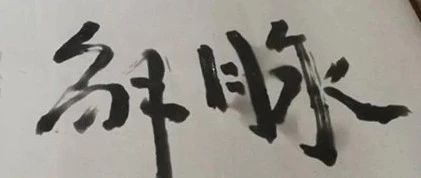We will discuss the clinical application of Xuan Hua Mai (Xuan pulse).
My mother-in-law introduced a friend to me. The main complaint was post-nasal drip, which had persisted for many years.
The patient is 67 years old and came to see if it would help. If it works, it would solve a big problem; if not, it doesn’t matter. He had a rather optimistic mindset.
After a brief consultation, the pulse condition was as follows:
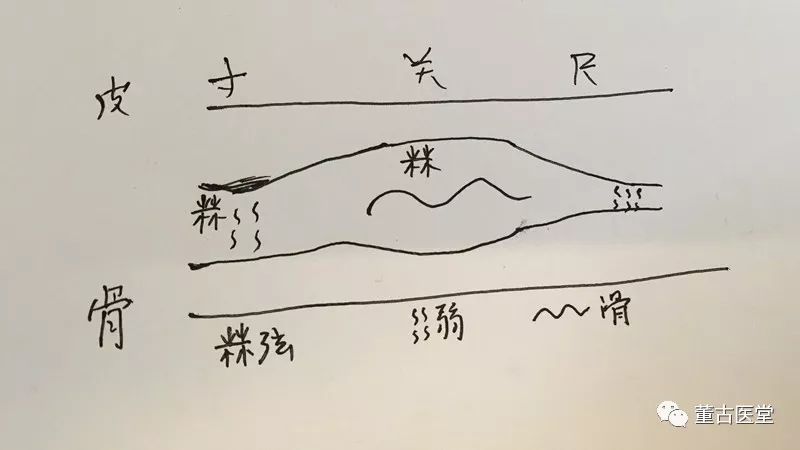
The patient also experienced night sweats, bitter mouth, occasional acid reflux, and tinnitus. The pulse showed a weak Shuang Cun (double inch) with a Xuan (string-like) quality, indicating weak pulse energy. The Shuang Guan (double bar) pulse was relatively large, with a smooth Xuan quality upon light palpation. The right Chi (cuff) pulse was weak and lacked strength. The prescription was as follows:
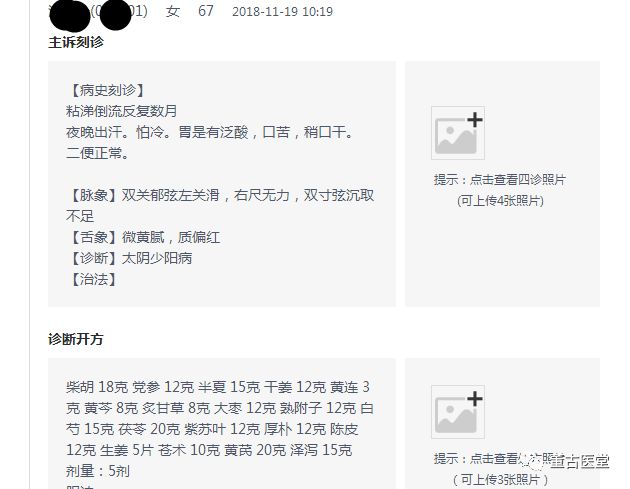
For the left Guan (bar) with a Xuan quality, Xiao Chai Hu Tang (Minor Bupleurum Decoction) was used; for the right Guan with a Xuan quality, Ban Xia Xie Xin Tang (Pinellia Decoction to Drain the Heart) was prescribed. The Cun (inch) pulse was weak, indicating water retention and dampness. Ban Xia Hou Po Tang (Pinellia and Magnolia Bark Decoction) was used to transform phlegm, along with Huang Qi (Astragalus), Cang Zhu (Atractylodes), and Ze Xie (Alisma) to eliminate dampness. The weak Chi pulse required Zhen Wu Tang (True Warrior Decoction).
From the symptom analysis, the bitter and dry mouth belonged to the Shao Yang (lesser yang), while the acid reflux belonged to the Tai Yin (greater yin). Night sweats were due to the water in the upper jiao being obstructed by phlegm in the middle jiao, which could not descend. From the organ differentiation perspective, this indicated poor communication between the heart and kidneys.
Not long after, the patient returned for a follow-up and was very pleased. He reported that the nasal discharge had decreased. Initially, he thought there was no problem and did not want to return for follow-up or continue taking medicine. However, after taking the medicine, he found that his sleep had significantly improved. Previously, he had difficulty falling asleep, woke up at night, and could not sleep again after waking. During the day, he felt sleepy but could not sleep, often only getting 3 to 4 hours of sleep in a day. The patient thought he should continue taking the medicine to improve his sleep, so he came back for a follow-up.
The second diagnosis was as follows:
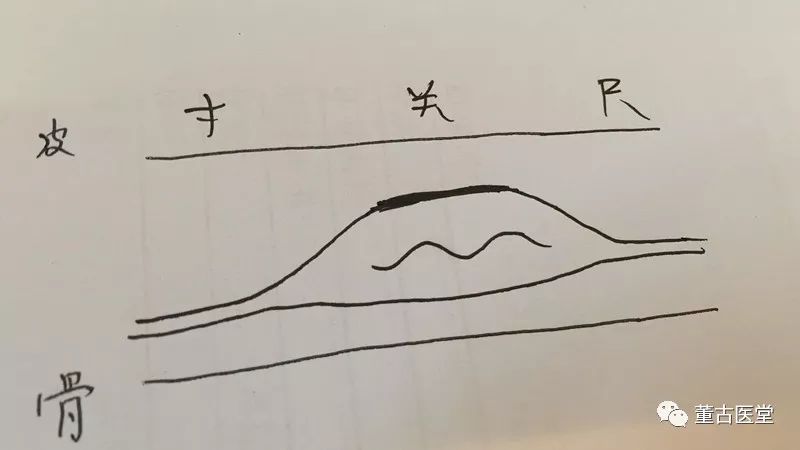
The Guan pulse was large, with a slightly tight Xuan quality and smooth energy. This indicated obstruction of phlegm and water in the middle jiao. The Cun pulse had become heavier and finer, indicating a reduction in phlegm and dampness, so Ban Xia Hou Po Tang was discontinued. The Chi pulse showed no obvious weakness, so Zhen Wu Tang was also discontinued. For the phlegm and water in the middle jiao, Dang Gui Shao Yao San (Tangkuei and Peony Powder) was added to eliminate water and nourish blood. Suan Zao Ren (Sour Jujube Seed) was also added.
Suan Zao Ren: According to the Shen Nong Ben Cao Jing (Shen Nong’s Classic of Materia Medica): It has a sour taste and is neutral. It is used to treat cold and heat in the heart and abdomen, and to relieve soreness and dampness in the limbs. Long-term use calms the five organs. This is very suitable for this case.
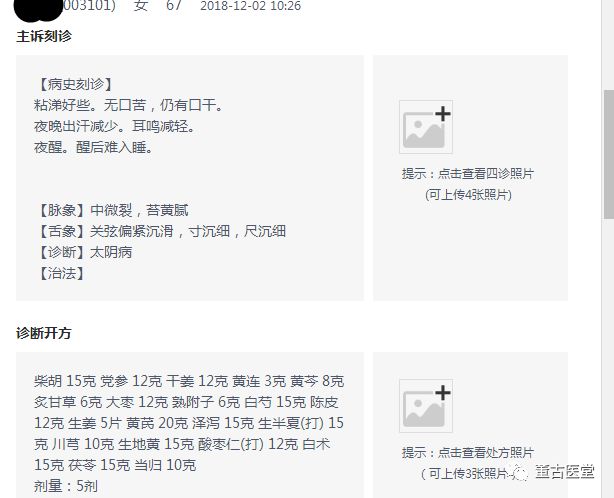
Several days later, the temperature suddenly dropped, even in Guangzhou, the weather became quite cold. The patient returned for a follow-up.
This time, it was due to a runny nose. The post-nasal drip had basically disappeared. The patient reported significant improvement in sleep. He even found it hard to wake up in the morning. The tinnitus had also resolved.
The pulse diagnosis was as follows:
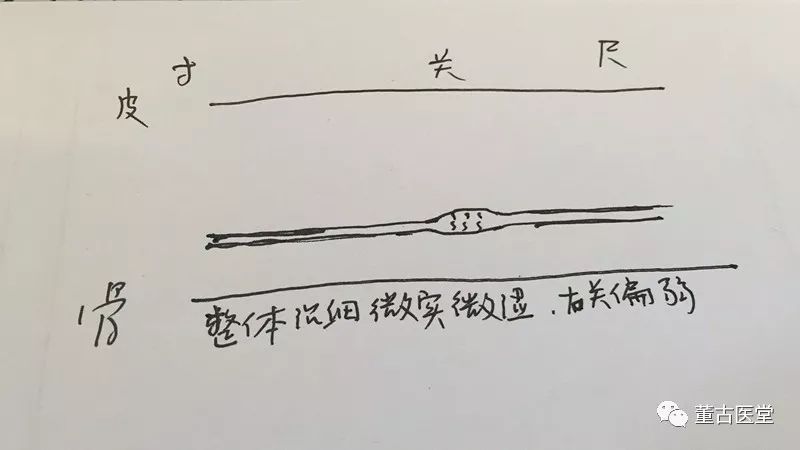
All six pulses were deep, slightly rough, and firm. The right Guan was relatively weak.
As the weather turned cold, the pulse immediately became deep. This is the best explanation for “winter pulse like stone.” The energy sinks inward, and the internal changes immediately become apparent. The patient’s constitution of blood stasis was revealed.
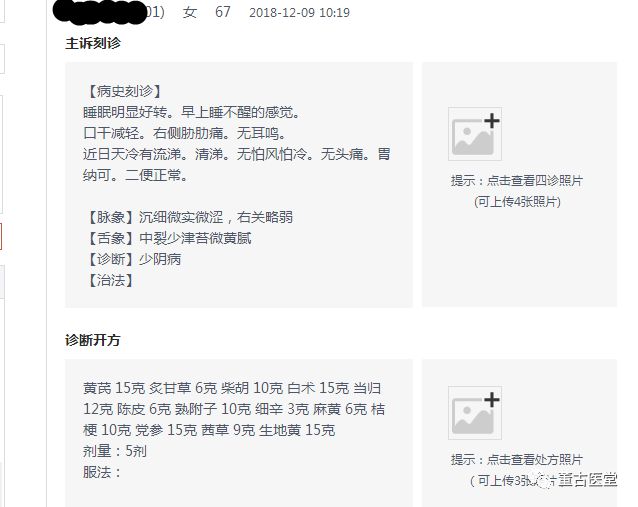
The treatment involved modifying Bu Zhong Yi Qi Tang (Tonify the Middle and Augment the Qi Decoction) and adding Ma Huang Fu Zi Xi Xin Tang (Ephedra, Aconite, and Asarum Decoction). Additionally, Sheng Di (Rehmannia) and Xian Cao (Madder) were added to invigorate blood and cool the blood.
It is important to note that throughout the treatment, the patient used Sheng Ban Xia (raw Pinellia). If processed Ban Xia was used, the effectiveness would likely be greatly reduced.
Ban Xia: Shen Nong Ben Cao Jing states that it is used for wind-cold cough, warming the middle, treating metal injuries, breaking up masses, blood stasis, cold and warmth, and for pain and inability to walk.This refers specifically to Sheng Ban Xia. Those who have personally tried Sheng Ban Xia will experience the sensation of numbness and constriction in the throat, which indicates its unique ability to open up obstructions. Once processed, this power is largely lost and replaced by the use of alum, which has phlegm-transforming properties. Therefore, many believe that Ban Xia can only transform phlegm, not realizing that it is a crucial medicine for treating severe and difficult diseases. Who else can tackle tumors and ulcers caused by toxic phlegm accumulation? It is truly lamentable that Sheng Ban Xia has been classified as toxic and banned for use.
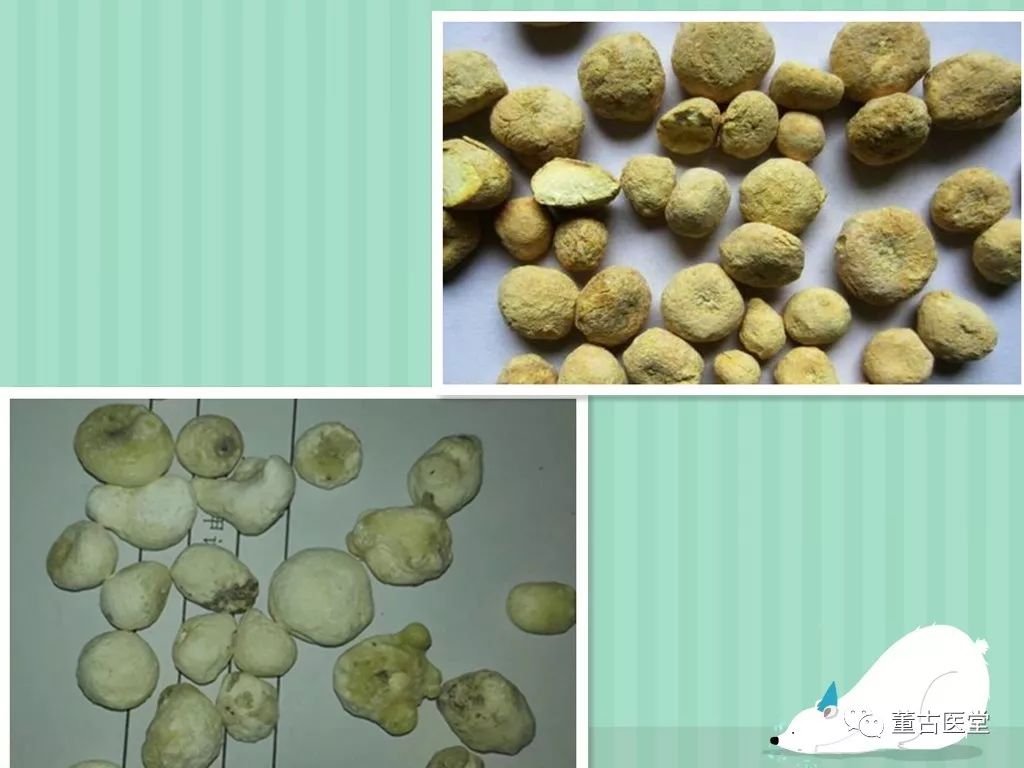
Toxic water accumulates, leading to severe illness. The power to disperse phlegm and clear water is unparalleled. It is regrettable that mediocre doctors are confused and do not recognize the true nature of great medicines, wrongfully labeling them as toxic, and subjecting them to excessive processing until they are rendered ineffective. Few understand the true value of these great medicines.Welcome to exchange and correct with fellow practitioners!
Dr. Dong (WeChat ID: 13310830760)


